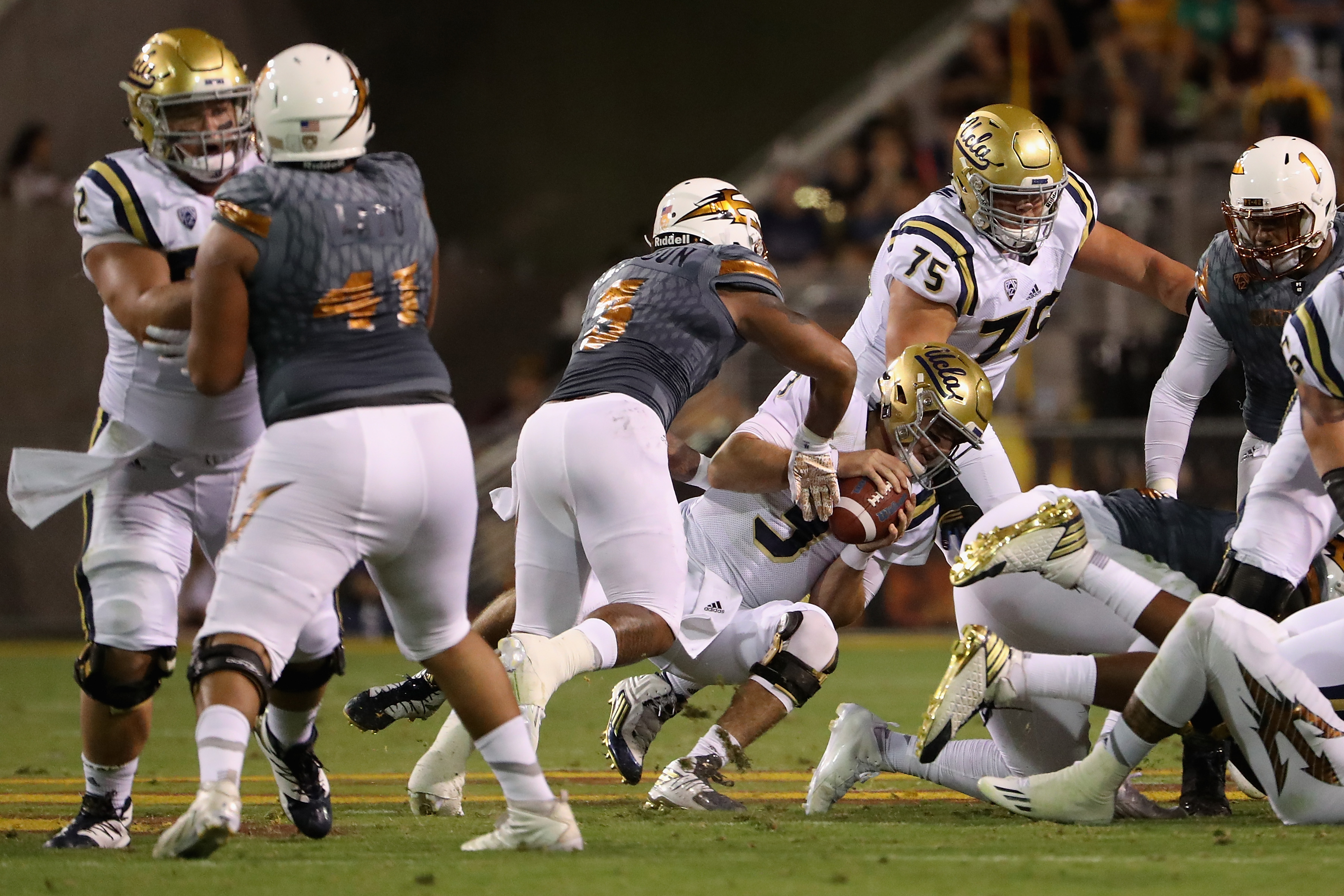Each week during the season, the USA TODAY Sports college staff (Nicole Auerbach, Paul Myerberg, George Schroeder and Dan Wolken) will provide their answers to on an intriguing question from college football. This week:
College football games are long (3:25) and getting longer – eight minutes longer across FBS on average than four years ago. (Oklahoma State games this season, for instance, average 4:13, according to NCAA stats.) Should there be adjustments to the rules to shorten games? If so, what?
Nicole Auerbach
Yes. The solution (at least to start) is easy: Don’t stop the clock for every first down. Sure, doing that will cut down on some of the late-game comebacks we get, but it’ll speed up so many games that it will be worth it.
Paul Myerberg
I don’t think there should be any adjustments for time to shorten games. What, the season isn’t short enough as it is? I’m in favor of games taking days on end and the college season running for seven days a week, 52 weeks a year. My dream is for a game between No. 1 and No. 2 lasting three days and 25 overtimes.
The only people who moan about the games being too long are television executives and reporters on deadline. Since we don’t print a paper on Sundays I say let’s keep things exactly as they are.
George Schroeder
Are you watching the games? Do you enjoy the touchdowns? Then you shouldn’t worry about the length of games. They’re definitely longer. This mostly bothers TV executives, who look at the tightly packaged NFL product, which fits neatly into a three-hour window, and wonder why the college game can’t be that way, too.
There have already been minor rule adjustments in recent years. For example, until the final two minutes of each half, the clock stops on plays that go out of bounds only until the referee spots the ball; then it restarts. Also, the 40-second play clock begins immediately after the conclusion of the previous play.
If someone wanted to adopt the NFL’s practice of continuing the running clock after first downs — currently, the clock stops briefly to move the chains — go for it, but understand it might greatly impact the ability for big comebacks, which is part of college football’s charm (and an entertainment advantage, frankly, over the NFL). But more tinkering is unnecessary. College football is great entertainment, a very good product. No need to mess with it.
Dan Wolken
The answer is frighteningly easy. It's time to get rid of the rule that stops the clock after first downs. When you watch the flow of NFL games vs. college, it's easy to see how games at the college level get elongated by these constant and unnecessary clock stoppages. And certainly, in late-game comeback situations, the ability to stop the clock just by getting a first down can help make things more exciting.
But when you consider that hurry-up offenses are so dominant these days, it's totally unnecessary to stop the clock after every first down. It also allows teams to run more plays, which theoretically could lead to more player injuries. It's high time to re-evaluate this rule and start moving college football back toward the three-hour window for which the game was originally intended.
It's better for the players and the fans to shorten games, and this isn't exactly a drastic change. In fact, it's what the NFL does, and they are much more successful at keeping games short.


